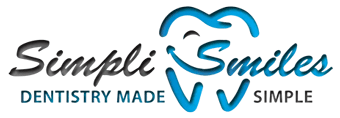Did you know that oral cancer is one of the most common types of cancer worldwide? Unfortunately, many people are not aware of the risks associated with this disease or how it can be prevented. That's why we're here today to provide you with all the information you need to understand what oral cancer is, who is at risk, and how to prevent it.
What is Oral Cancer?
Oral cancer, also known as mouth cancer or oral cavity cancer, is a type of cancer that can affect any part of the mouth, including the lips, tongue, gums, inner lining of cheeks, and roof/floor of the mouth. It occurs when there is an uncontrollable growth of abnormal cells in these areas.
There are several types of oral cancers, such as squamous cell carcinoma (the most common), adenocarcinoma, and melanoma. The symptoms may vary depending on where it develops, but some common signs include persistent sores or ulcers, red/white patches inside your mouth or on your lips, and difficulty swallowing.
The causes for developing oral cancer are not completely understood, but certain factors can increase your risk, such as tobacco use (smoking/chewing), excessive alcohol consumption, prolonged sun exposure to the lip area, and Human Papillomavirus (HPV) infection.
Who is at Risk for Oral Cancer?
Oral cancer is a serious health condition that affects thousands of people every year. While anyone can develop oral cancer, there are certain factors that increase the risk of developing this disease.
One major risk factor for oral cancer is tobacco use in any form, including cigarettes, cigars, and smokeless tobacco products like chewing tobacco or snuff. Heavy alcohol consumption also increases the risk of oral cancer, especially when combined with tobacco use.
Other factors that may increase the risk of developing oral cancer include exposure to HPV (human papillomavirus), excessive sun exposure to the lips, poor nutrition, or a weakened immune system due to chronic illness.
It's important to note that even if none of these risk factors apply to you specifically, it doesn't mean you're completely immune from developing oral cancer. Regular dental checkups and screenings can help detect early signs of this disease and improve your chances for successful treatment.
How to Prevent Oral Cancer
One of the most important things you can do is avoid tobacco products. Smoking and chewing tobacco increase your risk for oral cancer significantly. Additionally, heavy alcohol consumption has been linked to an increased likelihood of developing this type of cancer as well.
Another way to reduce your risk of oral cancer is by eating a healthy diet rich in fruits and vegetables. The antioxidants found in these foods may help protect against cell damage that could lead to cancerous growths.
Maintaining good overall health through regular exercise and adequate rest also plays a role in prevention. Stress reduction techniques like meditation or yoga may also be helpful in reducing inflammation throughout the body.
Make sure you visit your dentist regularly for routine checkups and cleanings. This will allow any potential issues to be caught early on, increasing your chances for successful treatment if necessary.
Oral Cancer Screening Tests
Oral cancer screening tests are vital to detect oral cancer in its early stages. These tests can help identify abnormal cells or tissue growth before they become cancerous. The most common types of oral cancer screenings include visual exams and physical exams.
Visual exams involve checking the mouth, lips, gums, tongue, and cheeks for any abnormalities, such as sores or discoloration. Physical exams involve feeling around the jaw and neck for any lumps or swelling that may indicate a possible tumor.
Another type of oral cancer screening test is a biopsy, which involves taking a small sample of tissue from any abnormal areas found during the visual or physical exam. This tissue is then examined under a microscope to determine if it is cancerous.
It's important to note that not all abnormalities found during an oral cancer screening will be cancerous. False positives can occur where an abnormality appears suspicious but turns out to be non-cancerous upon further testing.
What to Expect During an Oral Cancer Screening
Oral cancer screening is a routine examination done by dental professionals to detect any early signs of oral cancer. During the screening, your dentist will conduct a thorough evaluation of your mouth, including your lips, tongue, gums, cheeks, and throat.
The first step during oral cancer screening involves conducting a visual exam where the dentist looks for any unusual areas, such as red or white patches or sores inside your mouth, that may indicate pre-cancerous or cancerous cells.
Next, the dentist will perform a physical exam where they feel around inside your mouth to check for lumps and bumps that may be cause for concern.
During this process, you may also be asked about any symptoms you're experiencing, like pain in the jaw or difficulty swallowing. It's important to mention any issues you've been having so that they can be examined thoroughly.
To learn more, you can get in touch with us through online consultation or by calling us, and we'll guide you further. Call (516) 336-4902 to book an appointment at our Hicksville office and (516) 756-0111 for the Farmingdale office.
